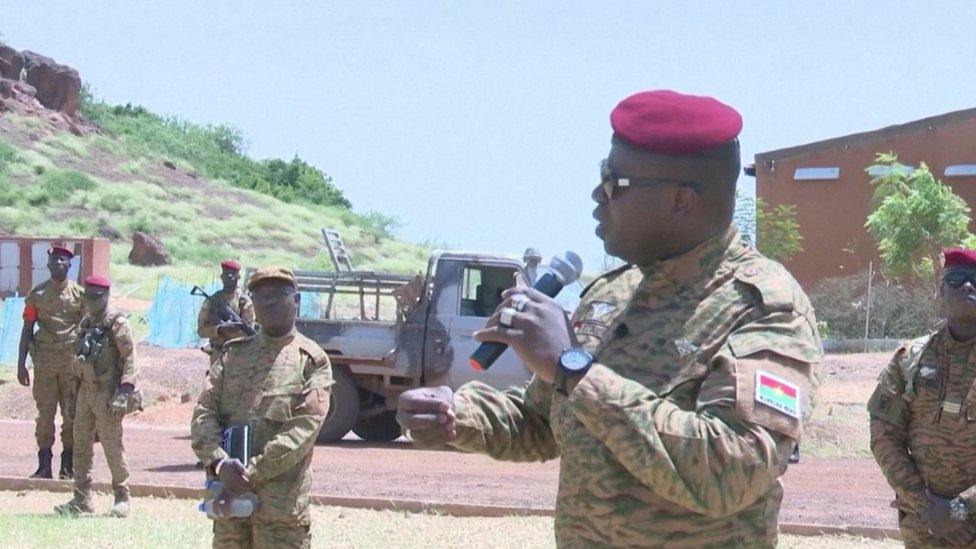Burkina Faso expels former president Damiba and senior officers in major military reshuffle

Burkina Faso has formally dismissed former transitional president Lieutenant-Colonel Paul-Henri Sandaogo Damiba and fourteen other senior officers from the national armed forces.
The decision was made official by decrees signed by the country’s current leader, Captain Ibrahim Traoré.
Paul-Henri Sandaogo Damiba held power briefly, from January to September 2022, after leading a coup d’état.
His transitional government aimed to tackle the country’s escalating security crisis but lasted only eight months before he was overthrown by Captain Traoré.
Despite initial ambitions to restore stability, Damiba’s administration struggled to deliver the security improvements it had promised.
Reasons Behind the Dismissals
The official decrees did not detail specific reasons for the dismissals, but analysts point to potential political and military rifts within the Burkinabè armed forces.
The expulsion of Damiba and his allies is seen by some as Traoré’s strategic move to solidify his control and reorganize the military according to his vision.
Burkina Faso has grappled with a severe security crisis for years, enduring regular terrorist attacks from armed Islamist groups.
During his brief tenure, Damiba vowed to restore security, yet violence continued unabated, undermining public confidence in his leadership and contributing to his eventual ousting.
Ibrahim Traoré’s Military Restructuring Efforts
Since taking power in September 2022, Captain Ibrahim Traoré has prioritized reforming the military to increase its effectiveness.
By dismissing Damiba and other officers, Traoré appears intent on consolidating his authority and refocusing the military on the fight against armed insurgent groups.
Additionally, Traoré has pursued international partnerships to secure resources and bolster Burkina Faso’s counter-terrorism capabilities.
The extensive dismissals signal deeper internal divisions within the military, as well as the need for restructuring to enhance operational unity.
Traoré’s reform efforts underscore his intent to create a more cohesive and responsive military force, though the decisions have sparked debate and concern over potential ramifications.
Toward a Larger Military Overhaul
Under Traoré’s leadership, Burkina Faso’s military has assumed a central role in the country’s political landscape and transitional governance.
Damiba’s dismissal, alongside his supporters, may signal the beginning of a broader reorganization aimed at building a more united and resolute military—one better equipped to confront internal threats and contribute to national stability.
About The Author
dailymailafric
I am an avid African news observer, and an active member of Daily Mail Africa.
I’m Passionate about staying informed on diverse topics across the continent,
I actively contribute to publishing on political, economic and cultural developments in Africa.



